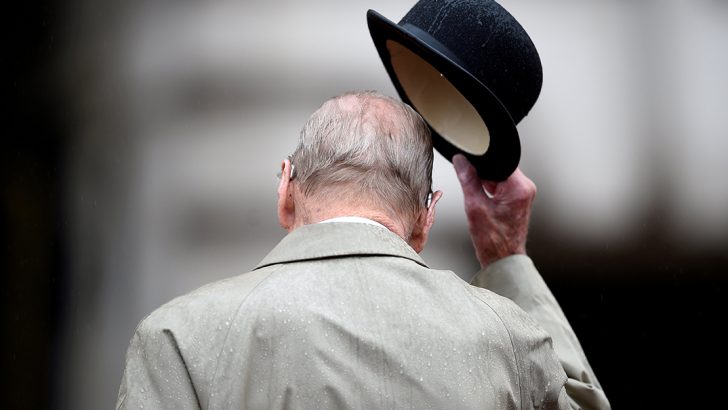Admiration for members of the British royal family is not something that comes to me spontaneously. It would, of course, be hard not to have sympathy for Queen Elizabeth II given some of the embarrassment her adult children have caused her. The monarch has witnessed first-hand the consequences of marital infidelity and subsequent family breakdown. Three of her four children are divorced.
Most families get to deal with these crises with a fair amount of privacy. Not so a royal family, and it must have been distressing down the years for the queen to see lurid details of her children’s transgressions in the media.
Grandchildren
Often her grandchildren have not entirely covered the family in glory either which is surely a source disappointment, however much she evidently loves them.
One constant for Queen Elizabeth II has been her husband of 73 years the Duke of Edinburgh. Until his death on Friday at the age of 99, Philip was the longest-serving consort in British history.
Anyone who has lost a spouse will know the pain that the queen is feeling at the moment and the void that will be with her for the rest of her life following his death.
Much has been written about how Philip had a thoroughly modern approach to monarchy. He recoiled, apparently, at the stuffier sides of court life. And yet, for all of his modern approach to an ancient institution Philip seemed to perfectly embody a very old-fashioned if much-maligned virtue: duty.
Self-esteem
In a contemporary world obsessed with self-esteem and self-actualisation, Philip knew that when Elizabeth II acceded to the throne his previous life had to die and he was at her service. At a time when the mantra is “do whatever makes you happy” he was a powerful symbol of the importance of doing what you ought to do, rather than simply what you want to do.
In an interview recorded to mark his ninetieth birthday and rebroadcast over the weekend, the Duke of Edinburgh was asked if he regretted having to put his own life on hold. His response was charmingly disarming. “It’s what I had to do,” he said with a gentle smile.
There was no sense of a bruised ego, no pointless ‘what if’ meandering or self-pity for the life that he might’ve led had duty not called him at such a relatively early age.
But, it would be a mistake to see the prince’s sense of duty as mere stoicism. No, as Prof. Ian Bradley has pointed out: “Ultimately, it was the sincere, rooted and practical Christian faith that he shared with the queen that gave their partnership its grounding and which has nurtured the spiritual heart of the British monarchy for nearly 70 years”.
Philip embodied the profound Christian paradox that there is no love in life worth having that does not involve sacrifice.
Determination
His determination and dedication to service over so many years as the queen’s side is an inspiration at a time when we are told to just set aside things that are too hard or too boring or not how we would like to spend our time.
“Life is too short,” it is said, to spend time on things that don’t offer instant gratification. Philip’s example is a witness to the fact that perseverance is what matters, not constantly seeking after our own happiness above all else.
These are lessons we can all take to heart, whatever our views on monarchy.
There is a biblical truth here as well: discipleship means taking up the Cross. The more we avoid the Cross, the heavier it is. It is only a yoke that is good to bear, a burden that is light when we accept it.


 Michael Kelly
Michael Kelly Prince Philip is pictured tipping his hat outside
Buckingham Palace
in 2017 just before he
retired from public life. Photo: Hannah McKay
Prince Philip is pictured tipping his hat outside
Buckingham Palace
in 2017 just before he
retired from public life. Photo: Hannah McKay 